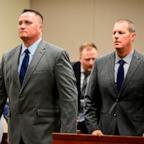Will Promising New Malaria Vaccine Deliver?
Among challenges ahead- administering the vaccine in Africa's most remote areas.
Nairobi, Nov. 5, 2009 — -- A new vaccine offering the best hope in the fight against the killer disease malaria could be on the market for African children in three to five years -- but the real challenge may be in making sure that it's available to the babies and toddlers in some of the poorest, most remote areas of Africa.
With many life-saving medications in Africa, such as anti-retroviral drugs for HIV/AIDS, getting them out to people has been nearly as difficult to deal with as manufacturing the drugs themselves.
The vaccine for Hepatitis B, for example, took nearly 10 years after being approved to be available to the general African population. The Path Malaria Initiative, funded by the Bill and Melinda Gates Foundation and the pharmaceutical company GlaxoSmithKline, says it is taking unprecedented measures to try and ensure that countries will be ready to distribute the malaria vaccine, called RTSS, as soon as it's approved.
"It is important to start this process early because it takes time to generate the data that are going to be required to use or not to use the vaccine or to put in place the resources that are required for a maximum uptake," Christian Loucq, director of the Path Malaria Vaccine Initiative, told ABC News.
The vaccine is still in its final stage of development, but issues of distribution and implementation are being worked on in a parallel process along with the final phase of testing. While African scientists and doctors run the final trial using 16,000 babies and toddlers in seven different Sub-Saharan African countries, both GlaxoSmithKline and Path-MVI are working with African government health officials to make sure they have the capacity to get people vaccinated.
$500 million have been put into the making and testing of the RTSS vaccine so far, but making easily accessible will cost hundreds of millions of dollars more. The goal is for it to be free, and be included in the standard vaccination booster babies receive before their first birthday.
By giving the vaccine to children when they're young, scientists hope they will develop immunity to the disease as they grow up. There are already discussions with other aids groups and African governments on how to ensure the RTSS vaccine will be free to families.




